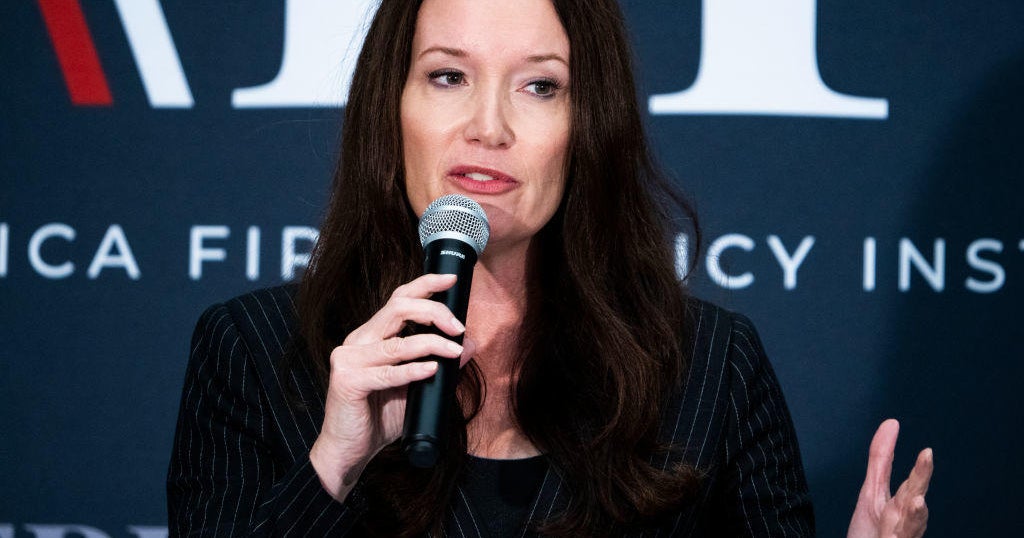President-elect Donald Trump said Saturday he will nominate former White House aide Brooke Rollins as his Secretary of Agriculture, the last of his picks direct executive agencies and another pick from his established circle of advisors and allies.
The nomination must be confirmed by the Senate, which will be controlled by Republicans when Trump takes office on January 20, 2025. Rollins would succeed Tom Vilsack, President Biden’s agriculture secretary who oversees the sprawling agency that oversees health care policies, regulations and programs. agriculture, forestry, livestock, food quality and nutrition.
Rollins, a graduate of Texas A&M University with a degree in agricultural development, is a longtime Trump aide and former domestic policy chief. She is president and CEO of the America First Policy Institute, a group helping to lay the groundwork for a second Trump administration.
Tom Williams/CQ-Roll Call, Inc via Getty Images
Rollins, 52, previously served as an aide to former Texas Governor Rick Perry and led a think tank, the Texas Public Policy Foundation.
Rollins’ selection completes Trump’s selection of the heads of the executive departments, just two and a half weeks after the former president won the White House again. Several other choices that traditionally fall to the Cabinet level remain, including the U.S. Trade Representative and the head of the Small Business Administration.
Trump did not provide many details about his agricultural policies during the campaign, but farmers could be affected if he makes good on his promise. impose widespread tariffs. During the first Trump administration, countries like China responded to Trump’s tariffs by imposing retaliatory tariffs on U.S. exports such as corn and soybeans that are routinely sold abroad. Trump responded by offering farmers massive billions in aid to help them weather the trade war.
President Abraham Lincoln founded the USDA in 1862, when about half of all Americans lived on farms. The USDA oversees several farmer assistance programs; animal and plant health; and the safety of the meat, poultry and eggs that anchor the nation’s food supply. Federal nutrition programs provide food to low-income people, pregnant women and young children. And the agency sets standards for school meals.
Robert F. Kennedy Jr., Trump’s nominee to lead the Department of Health and Human Services, has vowed to strip ultra-processed foods of school lunches and to prevent Supplemental Nutrition Assistance Program beneficiaries from using food stamps to purchase soda, candy or other so-called junk food. But it would be the USDA, not HHS, that would be responsible for making these changes.
In addition, HHS and USDA will work together to finalize the 2025-2030 edition of the Dietary Guidelines for Americans. They should be released late next year, with guidelines for healthy eating and standards for federal nutrition programs.
